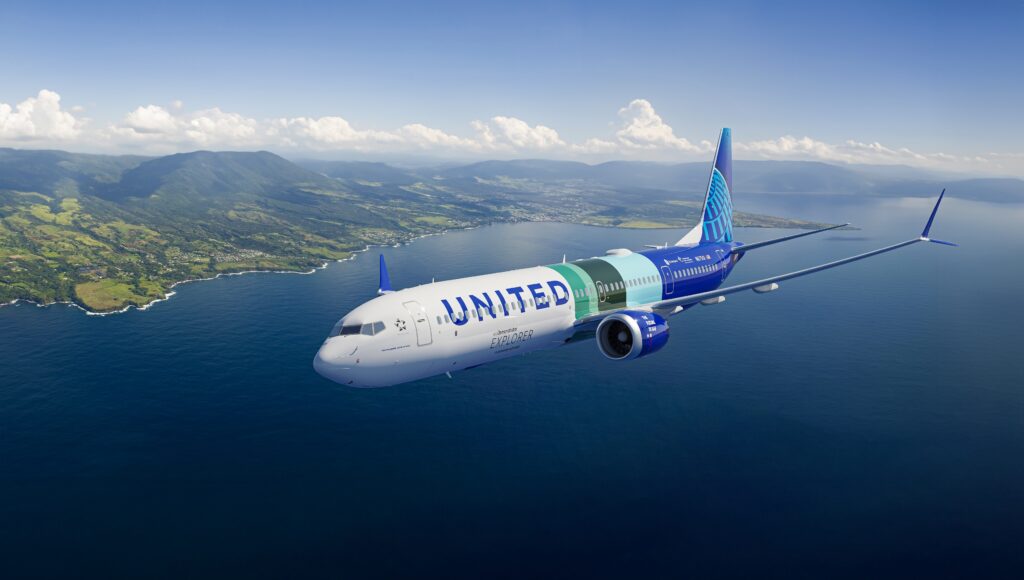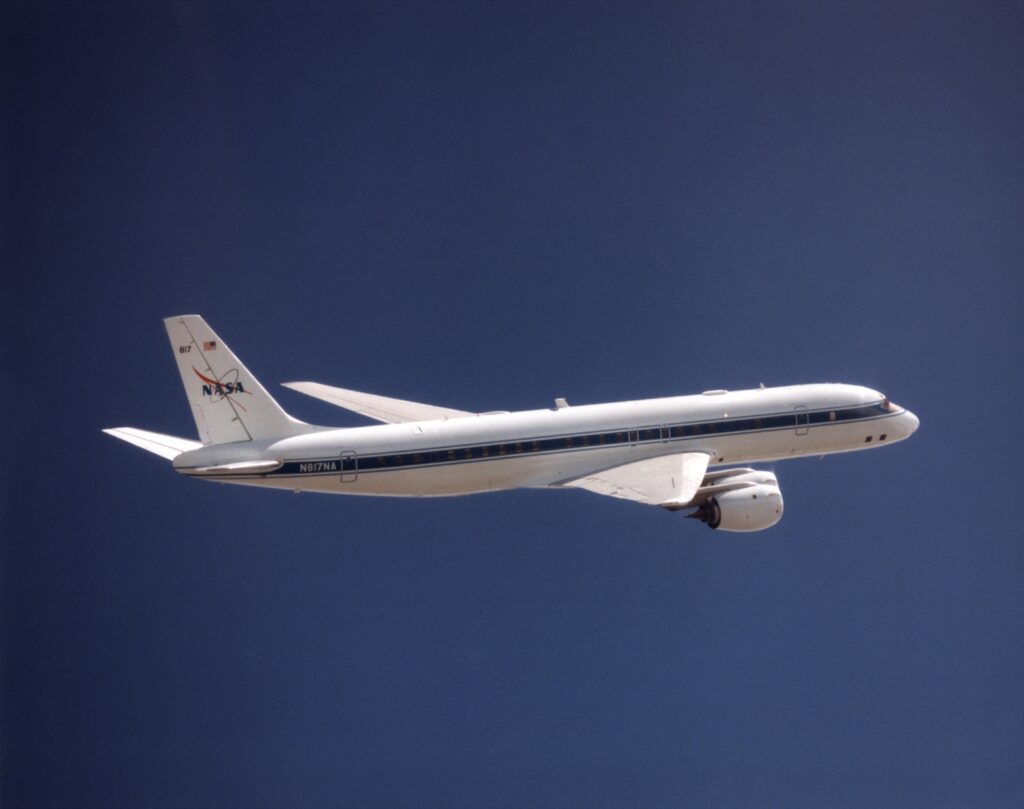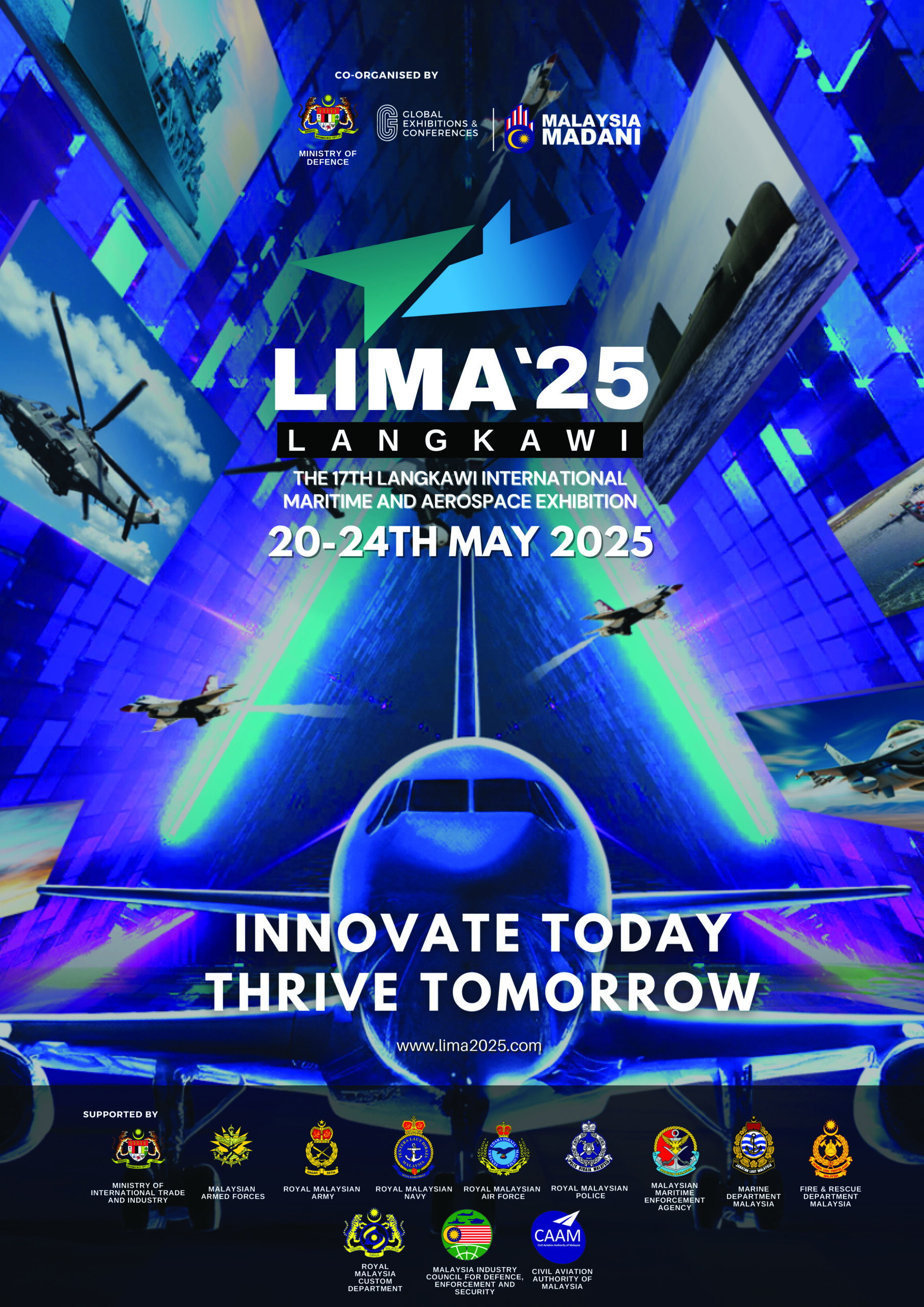

– Boeing ecoDemonstrator Explorer, a 737-10 for United Airlines, will fly on SAF, trailed by NASA’s DC-8 Airborne Science Lab measuring non-CO2 emissions
– Studying how SAF can reduce soot and impact contrails
– Supported by FAA, GE Aerospace, German Aerospace Center (DLR), World Energy
In a collaboration to strengthen sustainability in aviation, Boeing is partnering with NASA and United Airlines for in-flight testing to measure how sustainable aviation fuel (SAF) affects contrails and non-carbon emissions, in addition to reducing the fuel’s life cycle climate impact.
Boeing’s second ecoDemonstrator Explorer, a 737-10 destined for United Airlines, will fly with 100% SAF and conventional jet fuel in separate tanks and alternate fuels during testing. NASA’s DC-8 Airborne Science Lab will fly behind the commercial jet and measure emissions produced by each type of fuel and contrail ice particles. NASA satellites will capture images of contrail formation as part of the testing.
The researchers aim to understand how advanced fuels, engine combustor designs and other technologies may reduce atmospheric warming. For example, tests will assess how SAF affects the characteristics of contrails, the persistent condensation trails produced when airplanes fly through cold, humid air. While their full impact is not yet understood, some research has suggested certain contrails can trap heat in the atmosphere.
World Energy is supplying SAF for the tests from its Paramount, Calif., facility. Additional support includes:
- U.S. Federal Aviation Administration (FAA) is providing funding through the ASCENT Center of Excellence
- GE Aerospace is providing technical expertise and project funding
- German Aerospace Center (Deutsches Zentrum für Luft- und Raumfahrt or DLR) is providing experts and instrumentation
The project is the latest phase in a multi-year partnership between Boeing and NASA to analyze how SAF can reduce emissions and enable other environmental benefits. Compared to conventional jet fuel, SAF – made from a range of sustainably produced feedstocks – can reduce emissions by up to 85% over the fuel’s life cycle and offers the greatest potential to reduce aviation CO2 over the next 30 years. SAF also produces less soot which can improve air quality near airports.

















